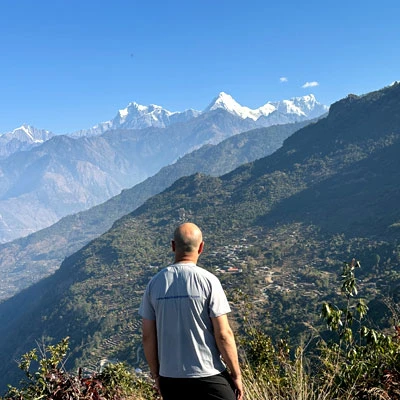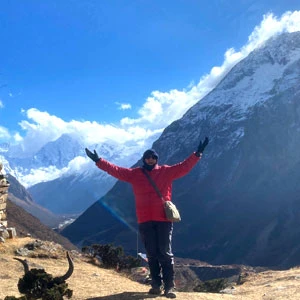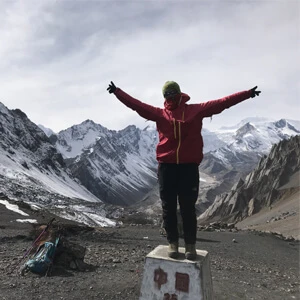Coronavirus Outbreak: Is Nepal still Safe to Travel?
Hello and Namaste from us all at Nepal Trekking Experts
The Corona Virus outbreak is turning out to be of major concern for all travel-loving enthusiasts around the world. We want you to feel safe with the knowledge Nepal Trekking Experts will provide you with regular and honest updates on the Corona Virus situation in Nepal. As of the 9th March 2020, Nepal is still a safe destination for visitors to come and enjoy themselves in the lap of the Himalayas (All air and land entry points are being screened).
Whilst we do not wish to minimize the situation in any way, it is perhaps worth remembering the death rate at present from the virus remains around 2%, the vast majority of these being elderly or frail people. To date, there have been six suspected cases reported in Nepal, but none of these proved positive. For up-to-date information on Nepal please go through the Corona Tracker.
Covid 19 information, prevention and myth.
COVID-19 was first reported on December 31st last year, China alerted the W.H.O. to several cases of unusual pneumonia in Wuhan. Since then it spread to every continent on Earth except Antarctica. There is currently no vaccine to prevent coronavirus disease 2019 (COVID-19). The best way to prevent illness is to avoid being exposed to this virus. There are ways however to protect yourself, and help prevent the spread of any respiratory disease.
What is the Mortality rate of COVID-19?
It is worth pointing out that the best predictions of the mortality rate of COVID-19, at the present range, are from one to three percent. Most deaths are reported to be mainly elderly people, with ongoing medical problems. For the majority of healthy individuals, it is unlikely to cause major illness.
What You Should Do to Reduce the Risk of contracting COVID-19:
Regularly and thoroughly clean your hands with an alcohol-based hand rub or wash them with soap and water.
Why?
Washing your hands with soap and water or using alcohol-based hand rub kills viruses that may be on your hands.
Maintain social distancing Maintain at least 1 meter (3 feet) distance between yourself and anyone who is coughing or sneezing.
Why?
When someone coughs or sneezes they spray small liquid droplets from their nose or mouth which may contain the virus. If you are too close, you can breathe in the droplets, including the COVID-19 virus if the person coughing has the disease.
Avoid touching eyes, nose, and mouth:
Why?
Hands touch many surfaces and can pick up viruses. Once contaminated, hands can transfer the virus to your eyes, nose, or mouth. From there, the virus can enter your body and can make you sick.
Practice respiratory hygiene: Make sure you, and the people around you, follow good respiratory hygiene. This means covering your mouth and nose with your bent elbow or tissue when you cough or sneeze. Then dispose of the used tissue immediately.
Why?
Droplets spread the virus. By following good respiratory hygiene you protect the people around you from viruses such as cold, flu, and COVID-19.
If you have a fever, cough, and difficulty breathing: Seek medical care early. Stay home if you feel unwell. If you have a fever, cough, and difficulty breathing, seek medical attention and call in advance. Follow the directions of your local health authority.
National and local authorities will have the most up-to-date information on the situation in your area. Calling in advance will allow your healthcare provider to quickly direct you to the right health facility. This will also protect you and help prevent the spread of viruses and other infections.
Stay informed and follows advice: Given by a reputable organization such as The World Health Organization.
These organizations will have the most up-to-date information on whether COVID-19 is spreading in your area. They are best placed to advise on what people in your area should be doing to protect themselves.
Protection measures for persons who are in or have recently visited (past 14 days) areas where COVID-19 is spreading
Follow the guidance outlined above:
Stay at home if you begin to feel unwell, even with mild symptoms such as headache and a slight runny nose, until you recover.
Why?
Avoiding contact with others and visits to medical facilities will allow these facilities to operate more effectively and help protect you and others from possible COVID-19 and other viruses.
If you develop fever, cough, and difficulty breathing, seek medical advice promptly as this may be due to a respiratory infection or other serious condition. Call in advance and tell your healthcare provider of any recent travel or contact with travelers.
Why?
Calling in advance will allow your healthcare provider to quickly direct you to the right health facility. This will also help to prevent the possible spread of COVID-19 and other viruses.
COVID-19 Myths and Rumors:
1. Only older adults and young people are at risk:
COVID-19, like other coronaviruses, can infect people of any age. However, older adults or individuals with preexisting health conditions, such as diabetes or asthma, are more likely to become severely ill.
2. Children cannot catch COVID-19:
All age groups can become infected. Most cases, so far, have been in adults, but children are not immune. In fact, preliminary evidence shows that children are just as likely to become infected, but their symptoms tend to be less severe.
3. COVID-19 is just like the flu:
SARS-CoV-19 causes illness that does, indeed, have flu-like symptoms, such as aches, fever, and cough. Similarly, both COVID-19 and flu can be mild, severe, or, in rare cases, fatal. Both can also lead to pneumonia.
However, the overall profile of COVID-19 is more serious. Estimates vary, but its mortality rate seems to be between about 1% and 3%.
4. Everyone with COVID-19 dies:
This statement is untrue. As we have mentioned above, COVID-19 is only fatal for a small percentage of people.
In a recent report, the Chinese Center for Disease Control and Prevention concluded that 80.9% of COVID-19 cases were mild.
5. Cats and dogs spread Coronavirus:
Currently, there is little evidence that the virus can infect cats and dogs. However, in Hong Kong, a Pomeranian whose owner had COVID-19 became infected. The dog did not display any symptoms.
6. Face masks protect against Coronavirus:
Healthcare workers use professional face masks, which fit tightly around the face, to protect them against infection. However, disposable face masks are unlikely to provide such protection.
As these masks do not fit neatly against the face, droplets can still enter the mouth and nose. Also, tiny viral particles can penetrate directly through the material.
However, if someone has a respiratory illness, wearing a mask can help protect others from becoming infected.
There is very little evidence that wearing such masks protects the wearer from infection.
If you have further queries then please do not hesitate to contact us.







